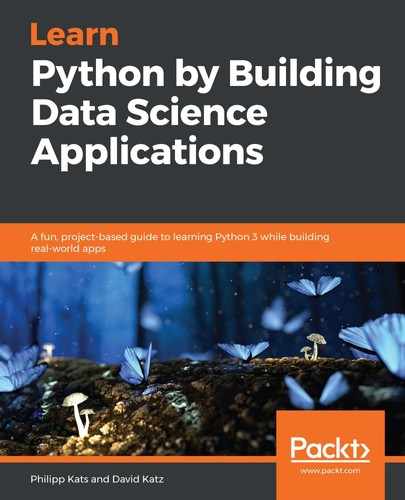itertools.product generates a Cartesian product (a set of all permutations), a concise equivalent of a nested for loop. Here is how it appears. First, we create three sets (product can take any number of iterables):
s1 = {'Peter', 'Benjamin'}
s2 = {'Flopsy', 'Mopsy', 'Cottontail'}
s3 = {'McGregor', 'Thomas', 'Bea'}
Next, we call a product function on all of them, printing the result:
>>> from itertools import product
>>> for el in product(s1, s2, s3):
print(el)
('Peter', 'Mopsy', 'Bea')
('Peter', 'Mopsy', 'Thomas')
('Peter', 'Mopsy', 'McGregor')
('Peter', 'Cottontail', 'Bea')
('Peter', 'Cottontail', 'Thomas')
('Peter', 'Cottontail', 'McGregor')
('Peter', 'Flopsy', 'Bea')
('Peter', 'Flopsy', 'Thomas')
('Peter', 'Flopsy', 'McGregor')
('Benjamin', 'Mopsy', 'Bea')
('Benjamin', 'Mopsy', 'Thomas')
('Benjamin', 'Mopsy', 'McGregor')
('Benjamin', 'Cottontail', 'Bea')
('Benjamin', 'Cottontail', 'Thomas')
('Benjamin', 'Cottontail', 'McGregor')
('Benjamin', 'Flopsy', 'Bea')
('Benjamin', 'Flopsy', 'Thomas')
('Benjamin', 'Flopsy', 'McGregor')
As you can see, the product function generates all the permutations of the elements from three sets.
